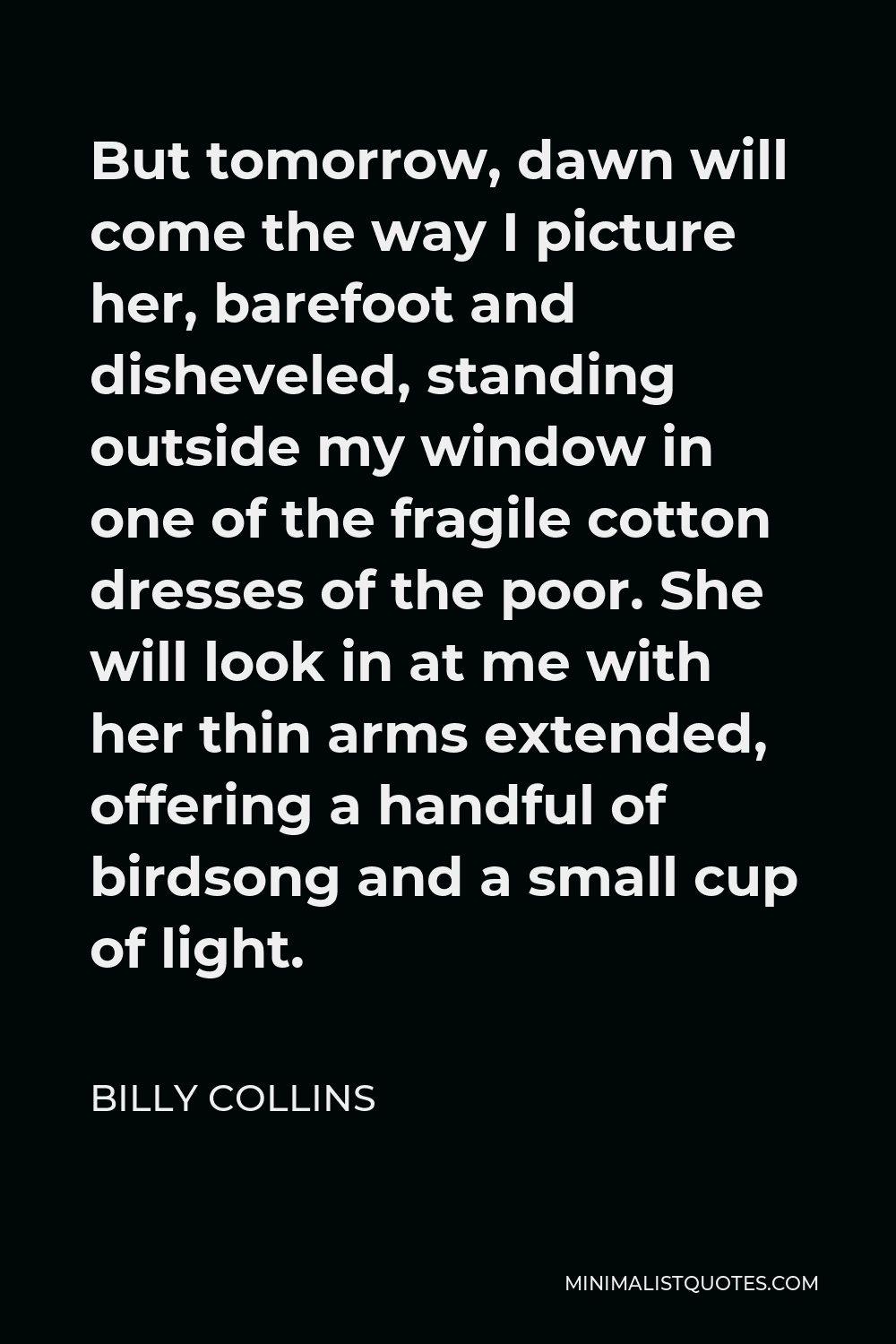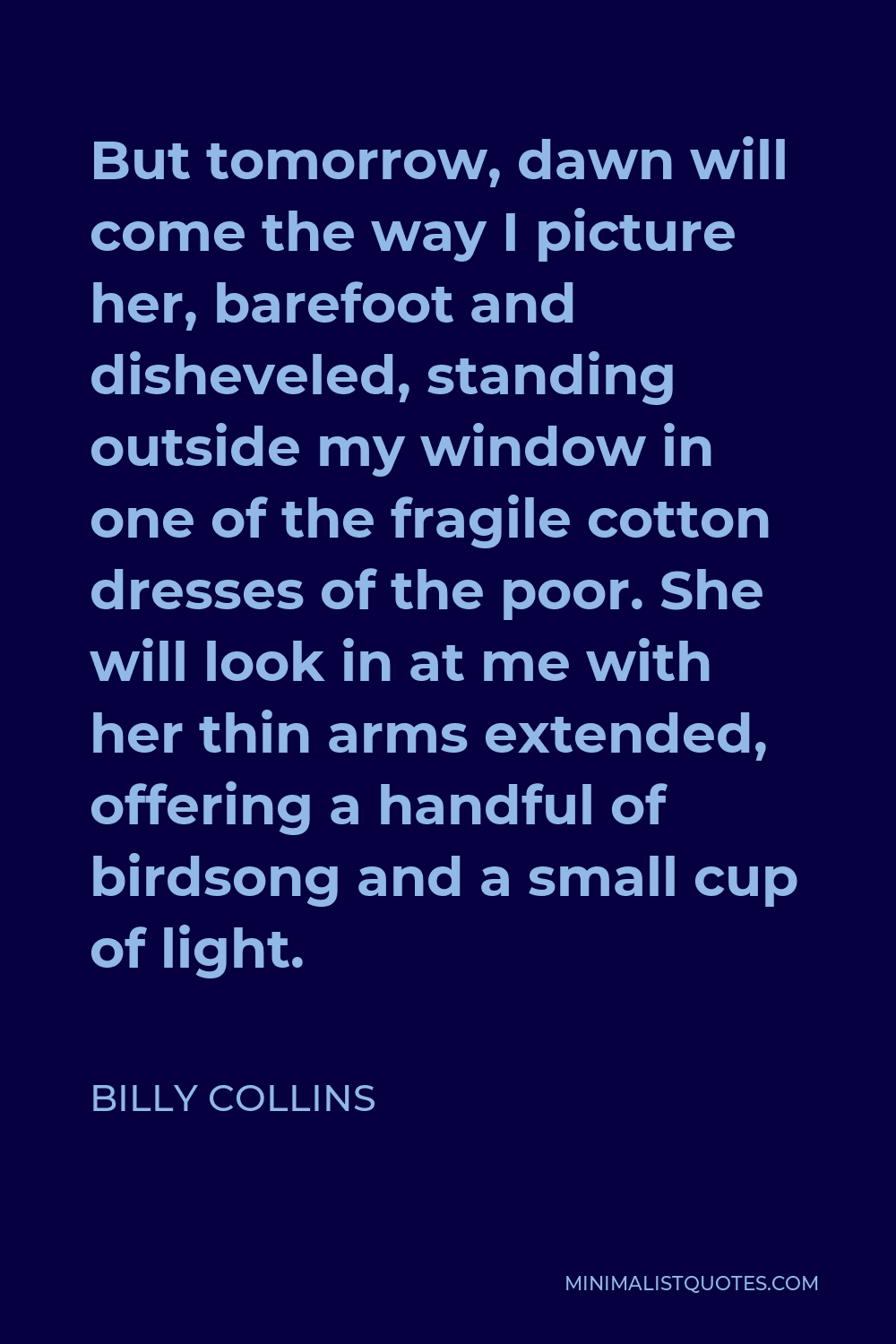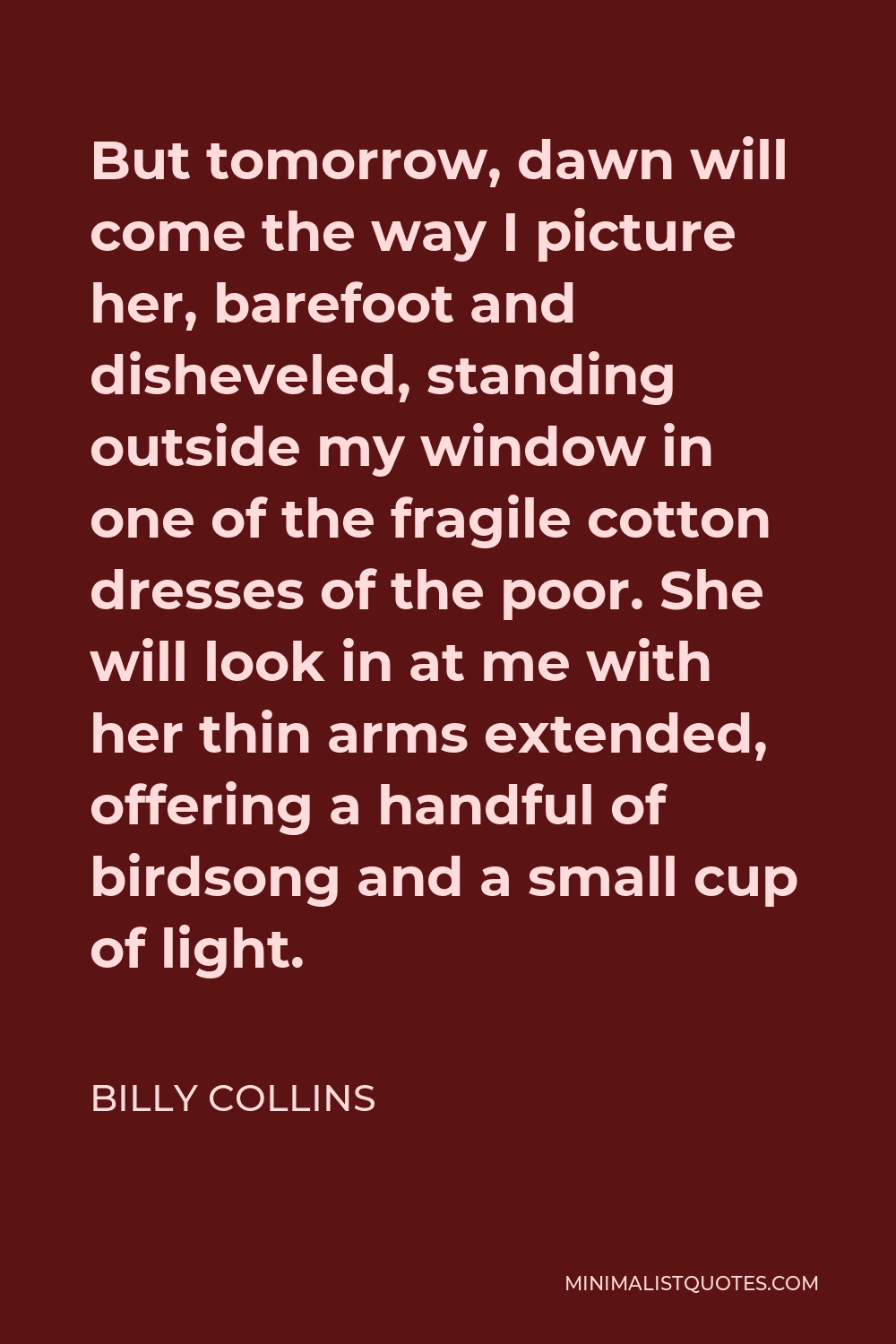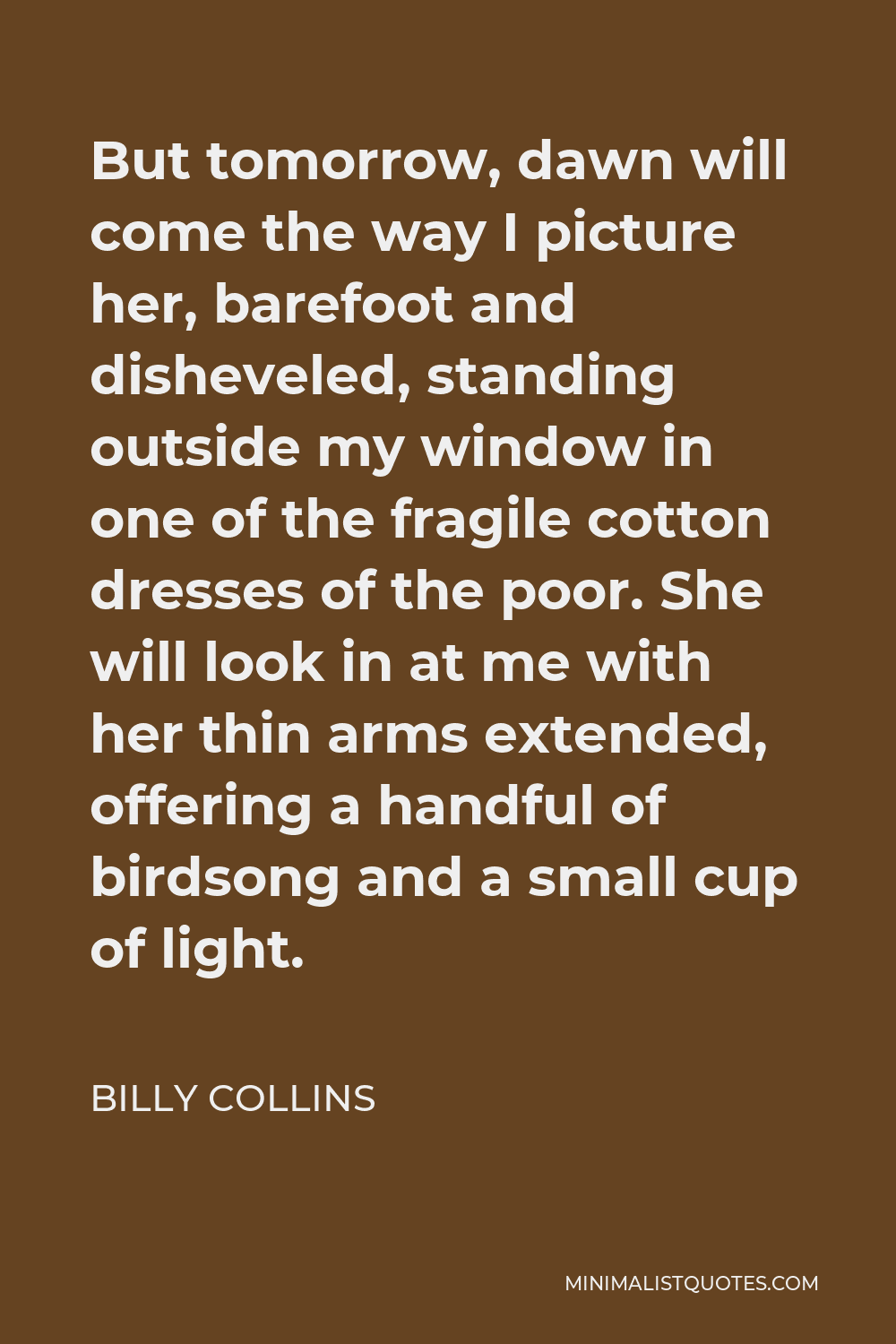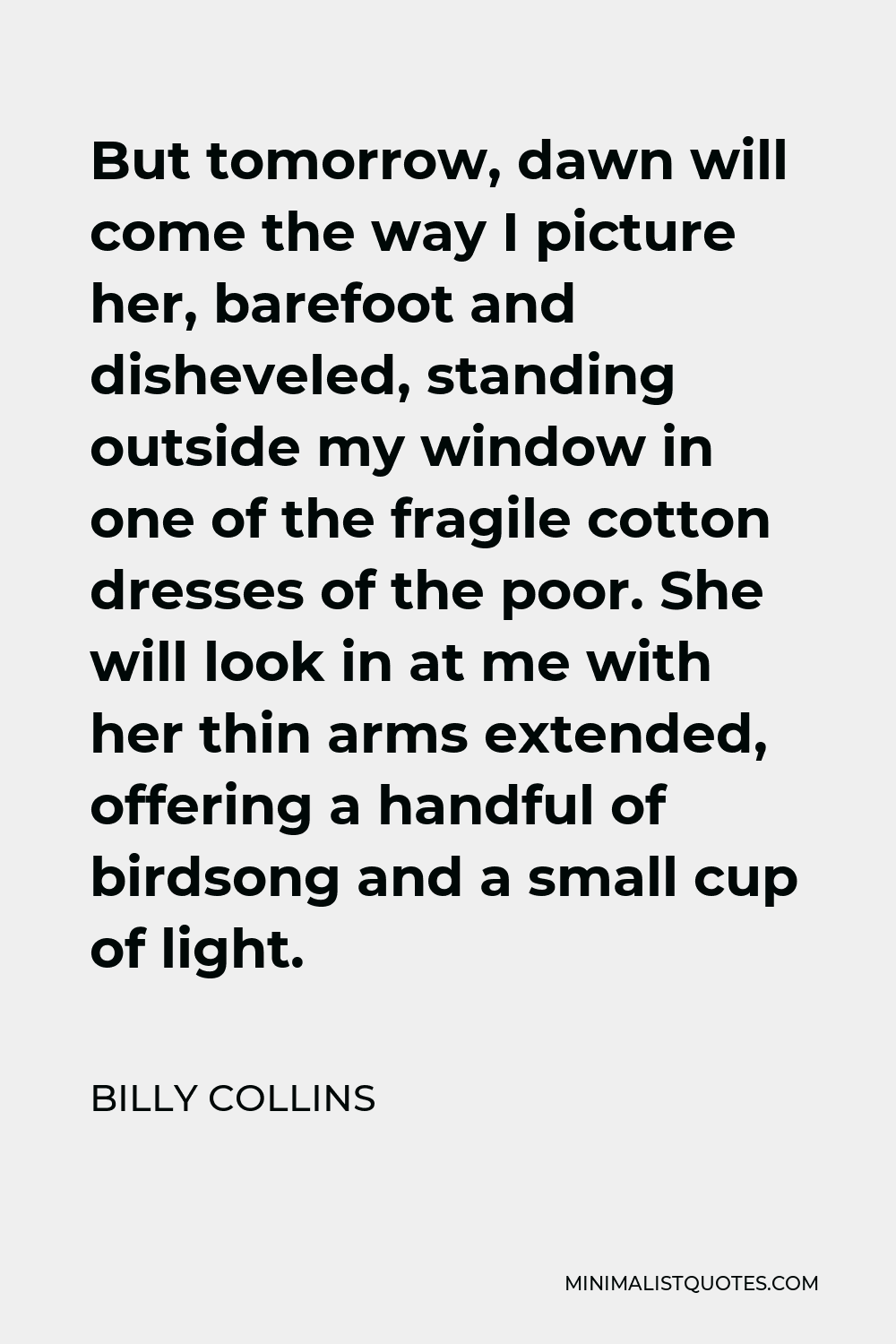You come by your style by learning what to leave out. At first you tend to overwrite—embellishment instead of insight.
BILLY COLLINSBut tomorrow, dawn will come the way I picture her, barefoot and disheveled, standing outside my window in one of the fragile cotton dresses of the poor. She will look in at me with her thin arms extended, offering a handful of birdsong and a small cup of light.
More Billy Collins Quotes
-





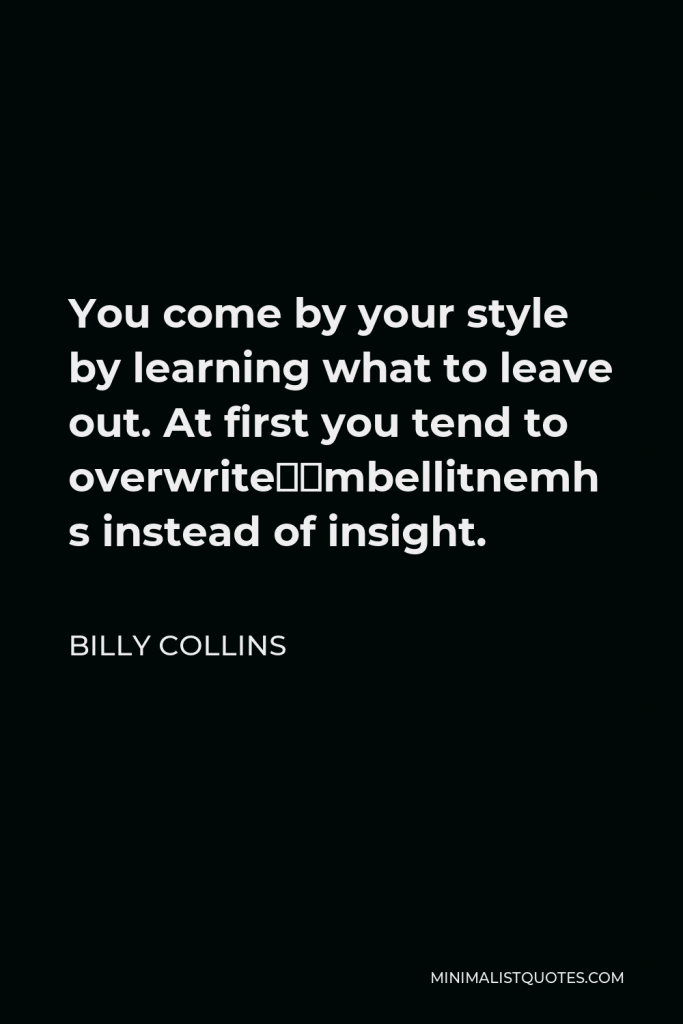

-





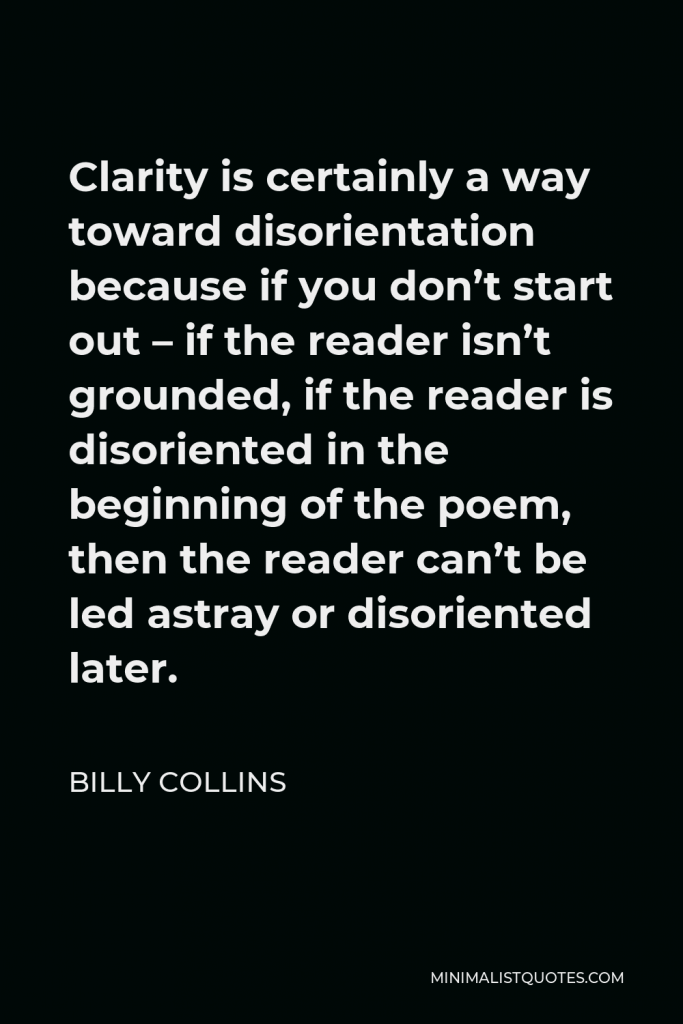

Clarity is certainly a way toward disorientation because if you don’t start out – if the reader isn’t grounded, if the reader is disoriented in the beginning of the poem, then the reader can’t be led astray or disoriented later.
BILLY COLLINS -





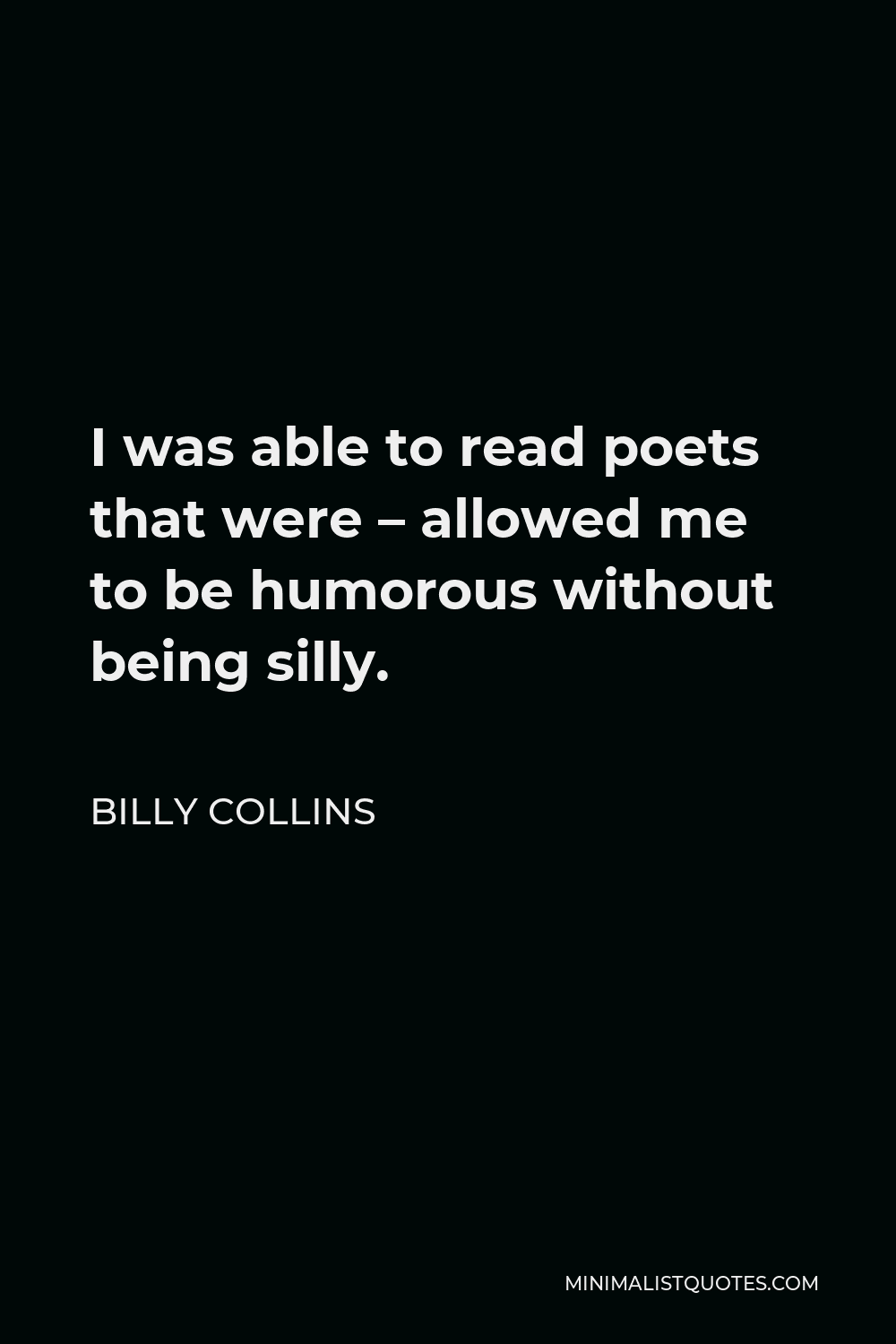
I was able to read poets that were – allowed me to be humorous without being silly.
BILLY COLLINS -





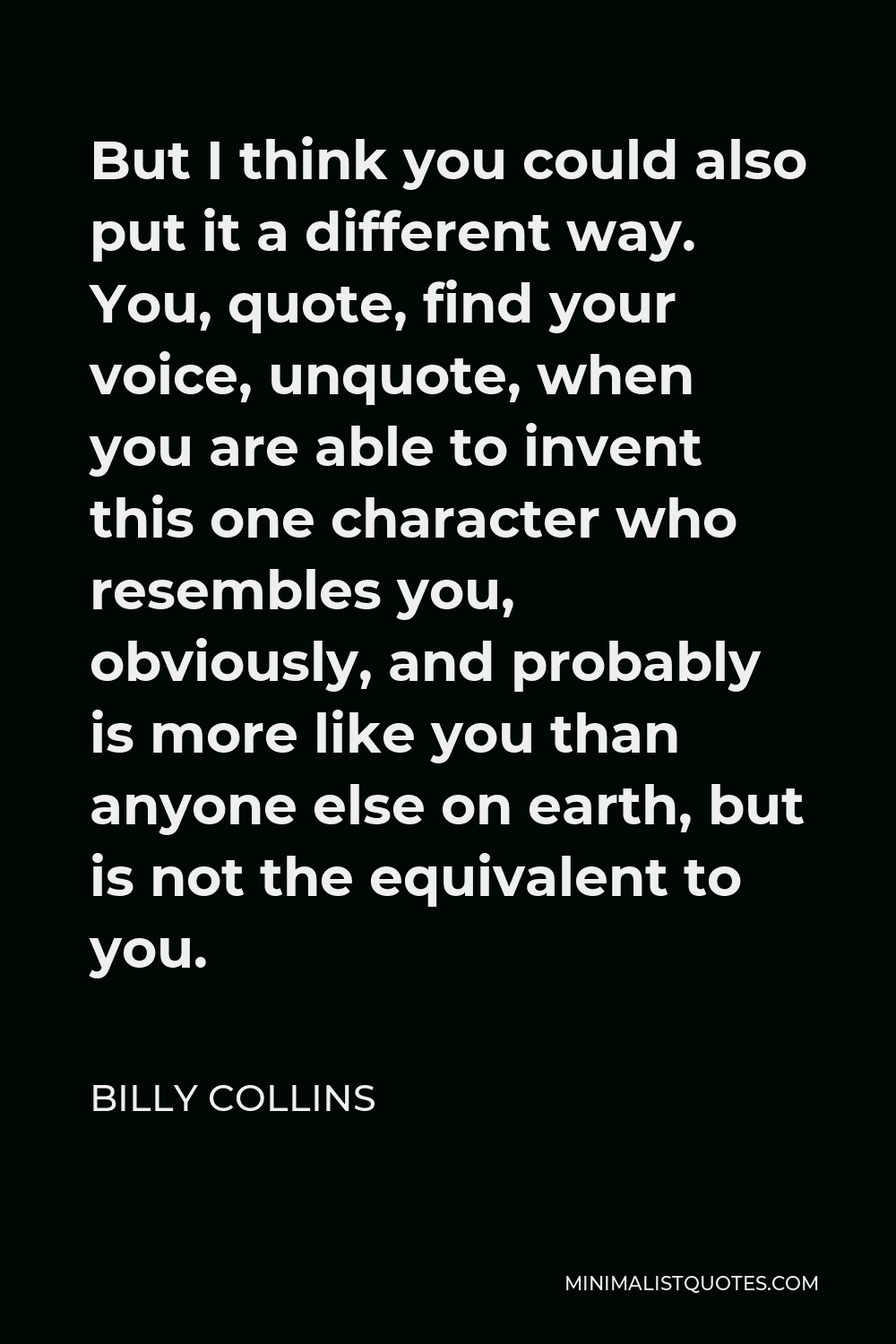
But I think you could also put it a different way. You, quote, find your voice, unquote, when you are able to invent this one character who resembles you, obviously, and probably is more like you than anyone else on earth, but is not the equivalent to you.
BILLY COLLINS -





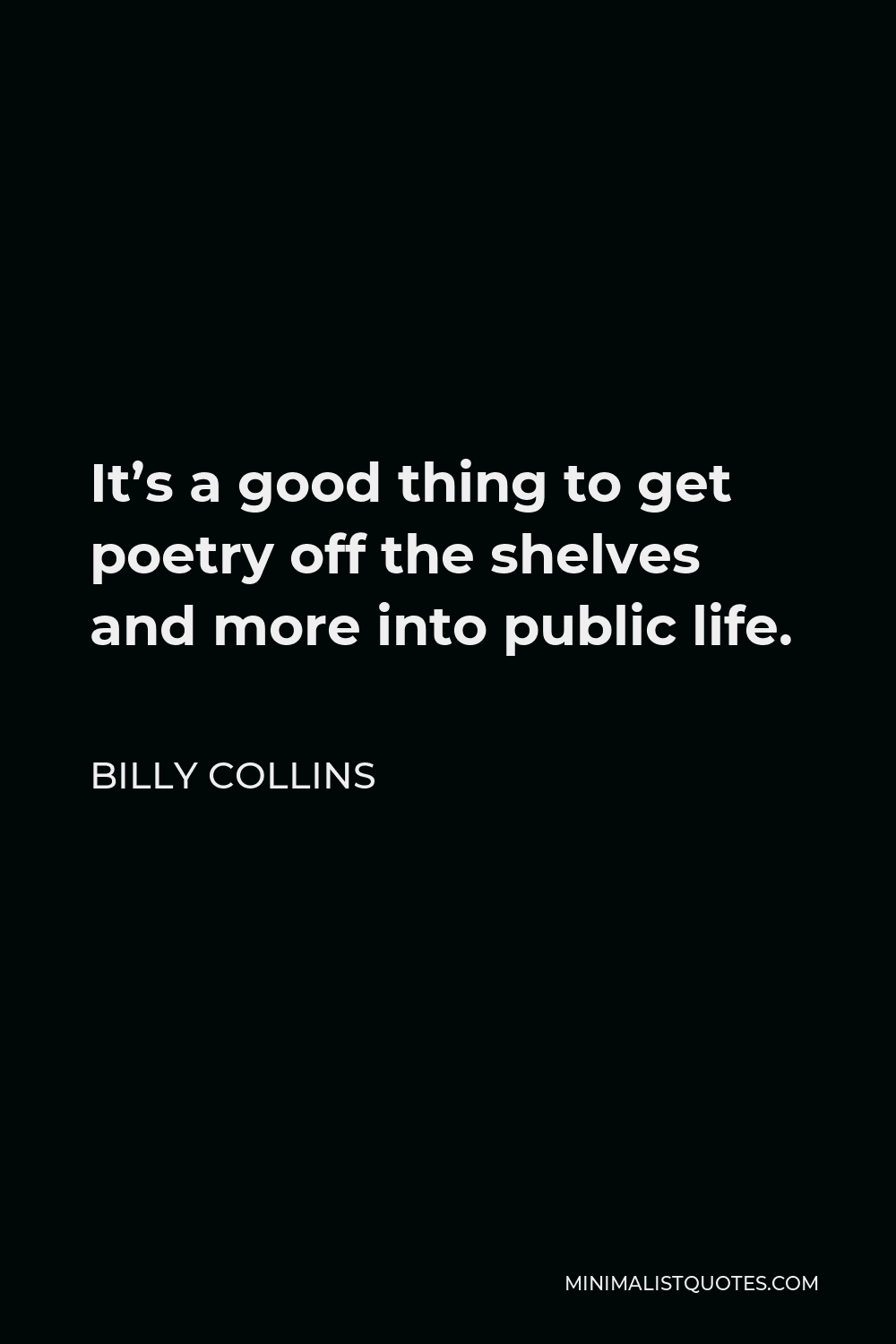
It’s a good thing to get poetry off the shelves and more into public life.
BILLY COLLINS -





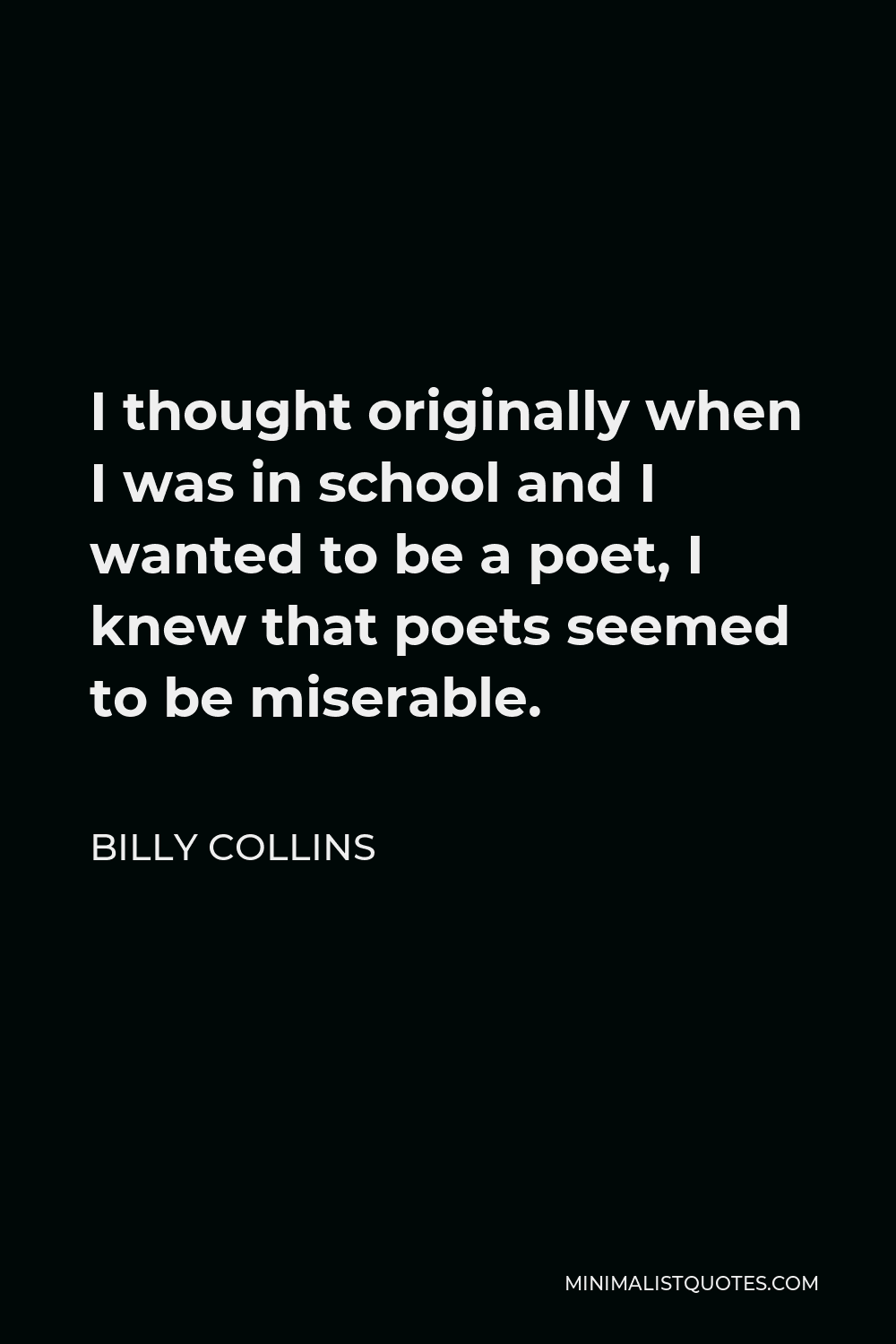
I thought originally when I was in school and I wanted to be a poet, I knew that poets seemed to be miserable.
BILLY COLLINS -





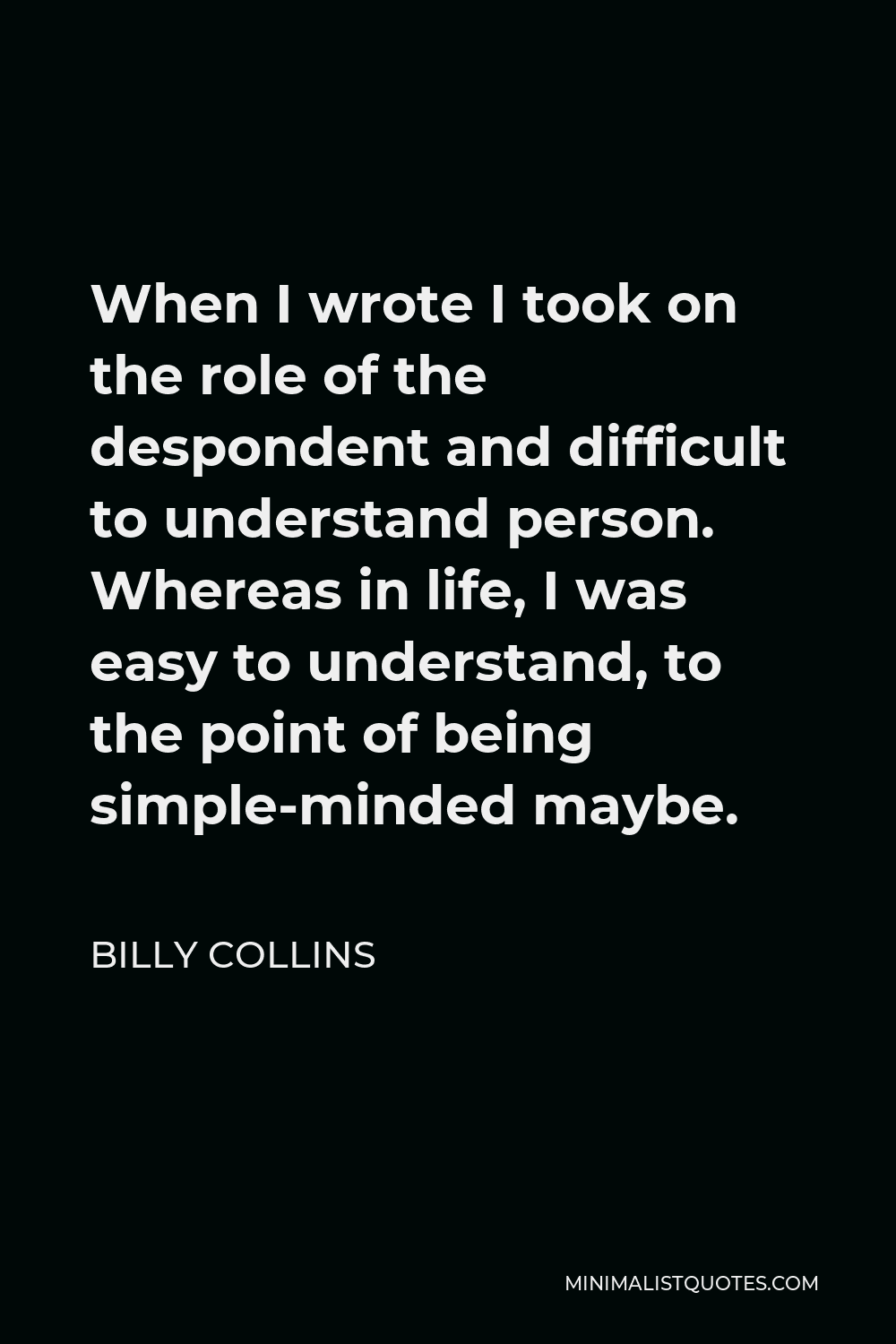
When I wrote I took on the role of the despondent and difficult to understand person. Whereas in life, I was easy to understand, to the point of being simple-minded maybe.
BILLY COLLINS -





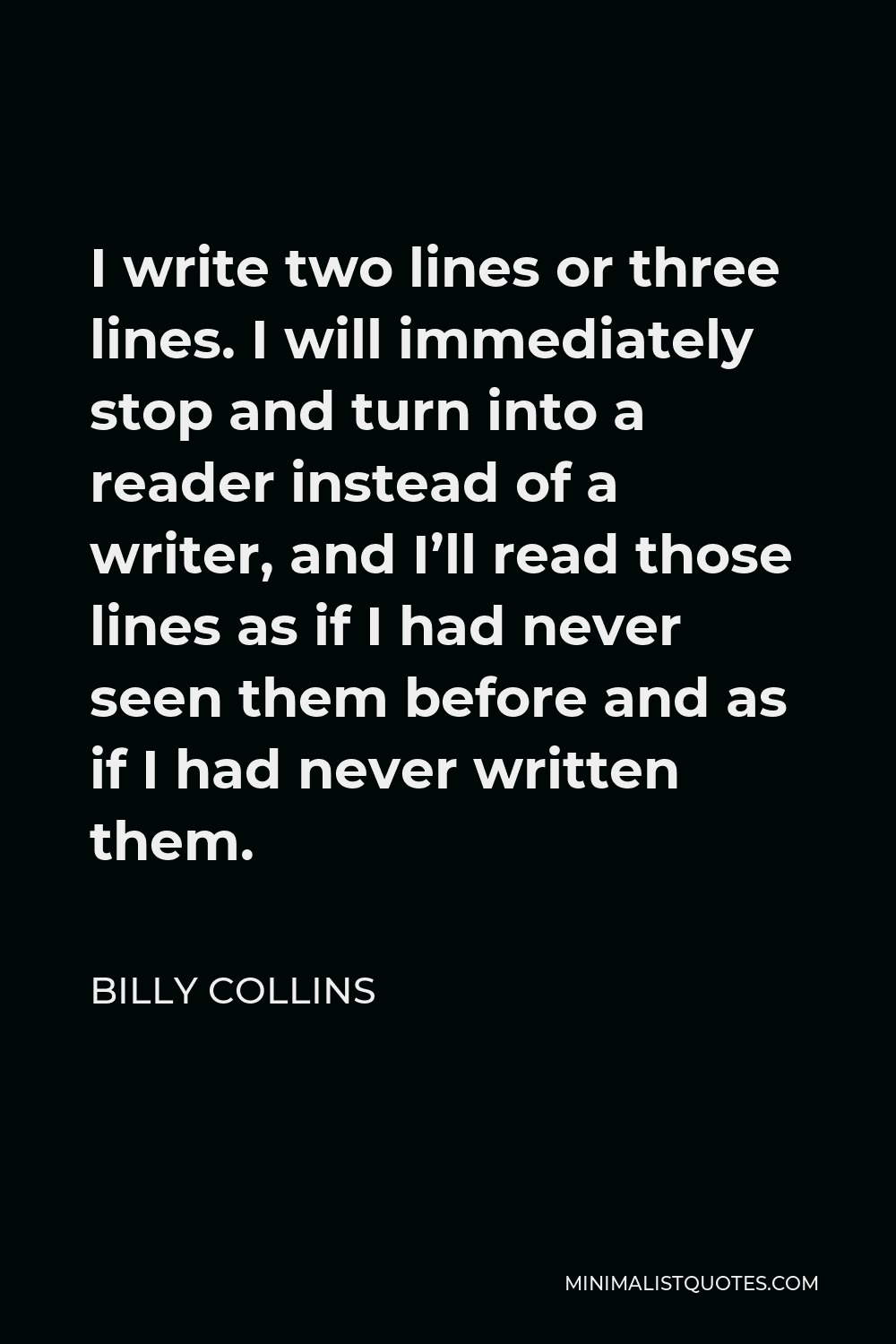
I write two lines or three lines. I will immediately stop and turn into a reader instead of a writer, and I’ll read those lines as if I had never seen them before and as if I had never written them.
BILLY COLLINS -





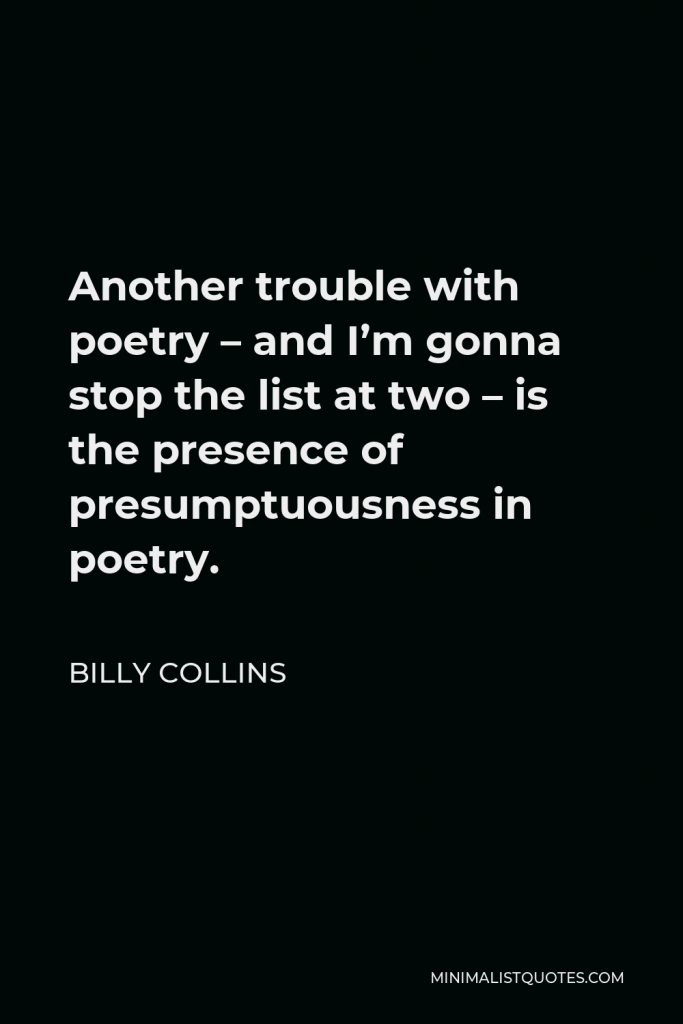

Another trouble with poetry – and I’m gonna stop the list at two – is the presence of presumptuousness in poetry.
BILLY COLLINS -





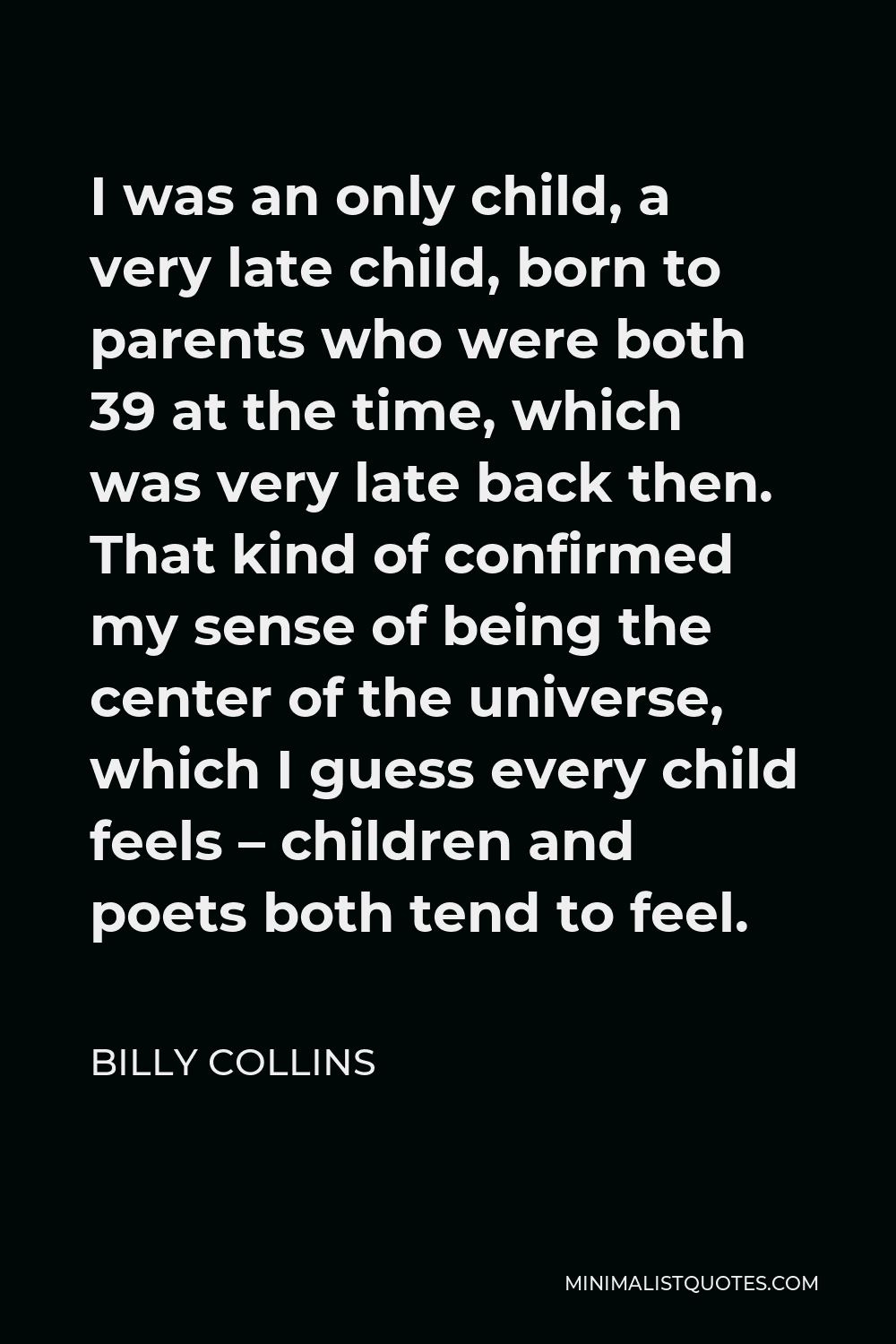
I was an only child, a very late child, born to parents who were both 39 at the time, which was very late back then. That kind of confirmed my sense of being the center of the universe, which I guess every child feels – children and poets both tend to feel.
BILLY COLLINS -





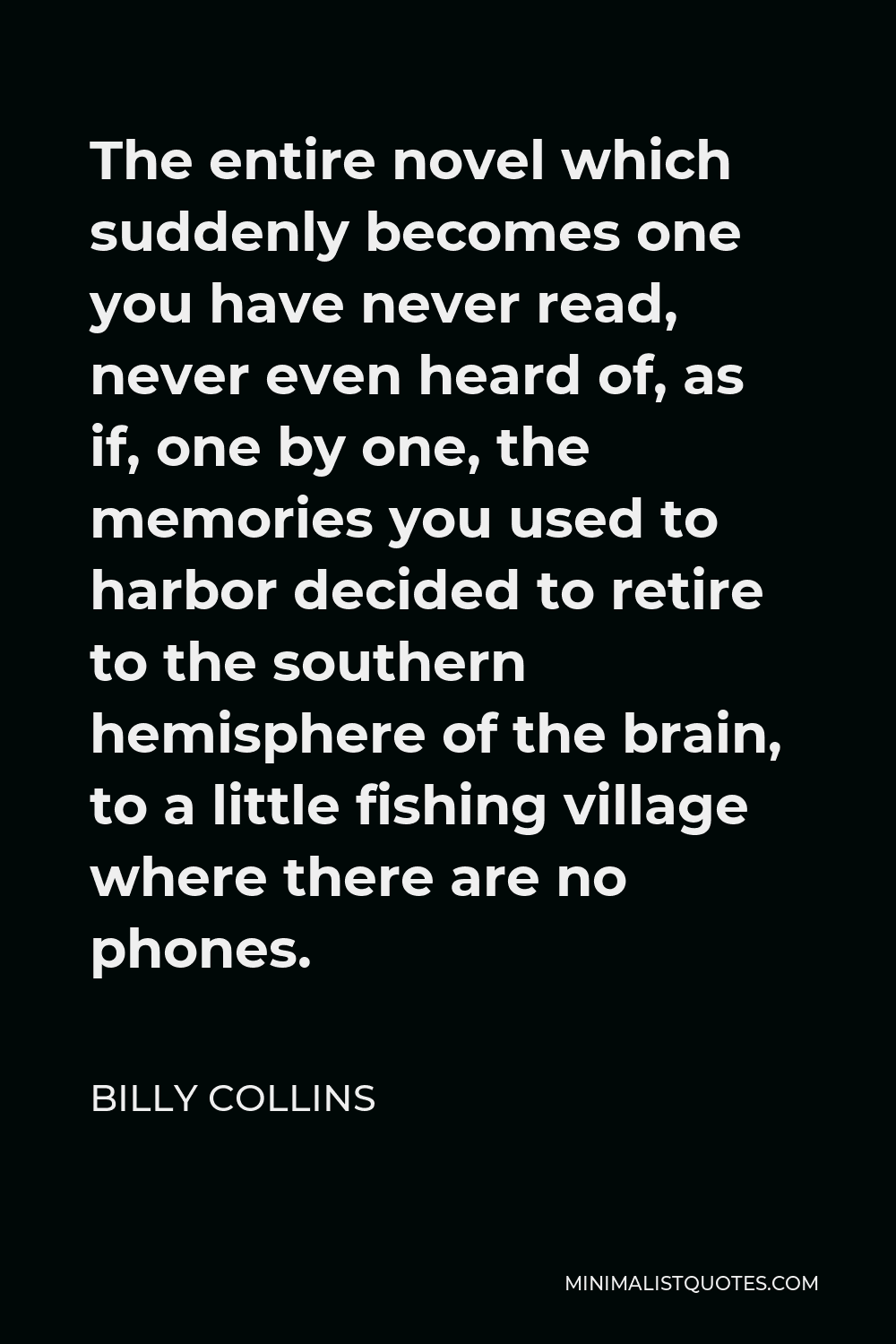
The entire novel which suddenly becomes one you have never read, never even heard of, as if, one by one, the memories you used to harbor decided to retire to the southern hemisphere of the brain, to a little fishing village where there are no phones.
BILLY COLLINS -





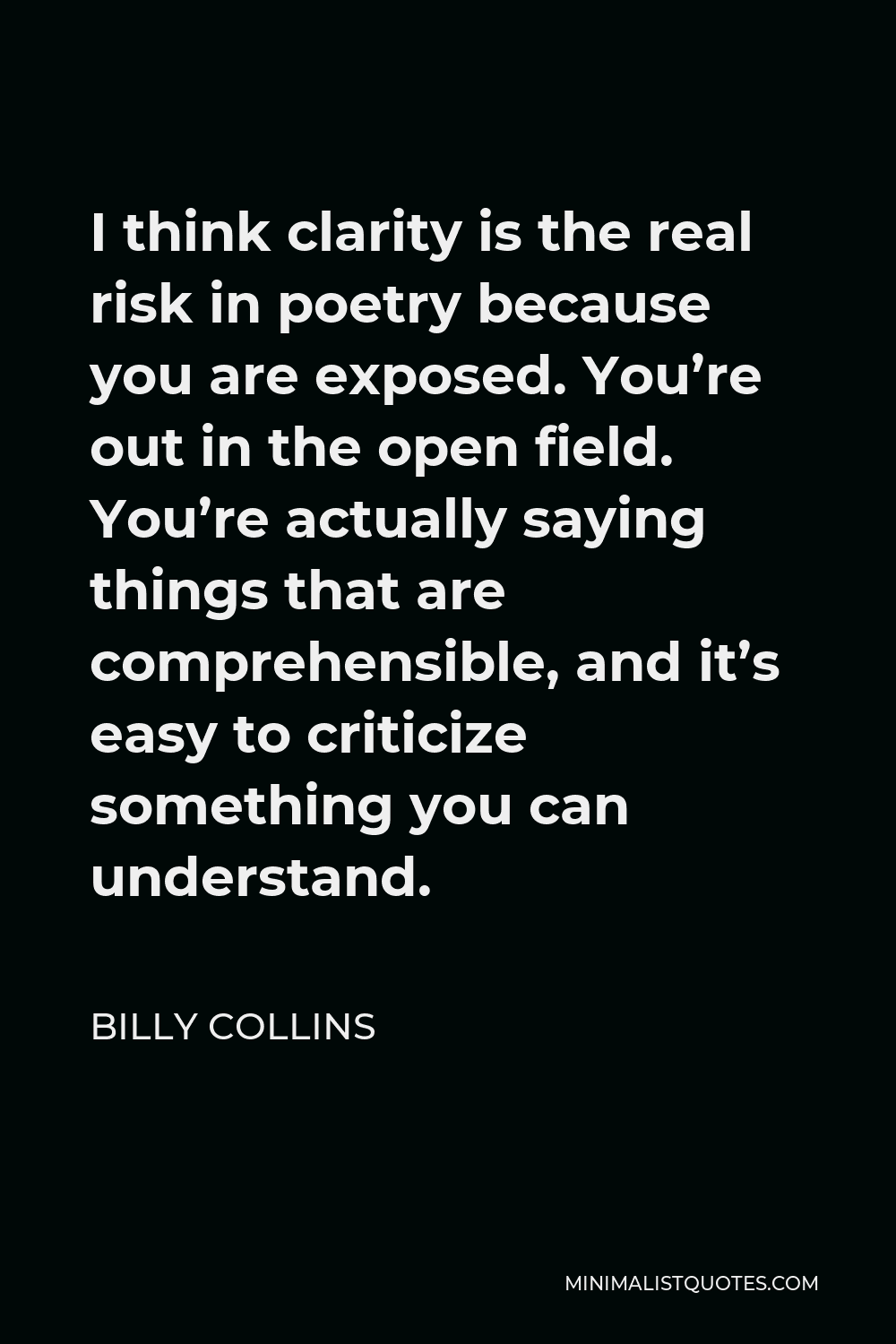
I think clarity is the real risk in poetry because you are exposed. You’re out in the open field. You’re actually saying things that are comprehensible, and it’s easy to criticize something you can understand.
BILLY COLLINS -





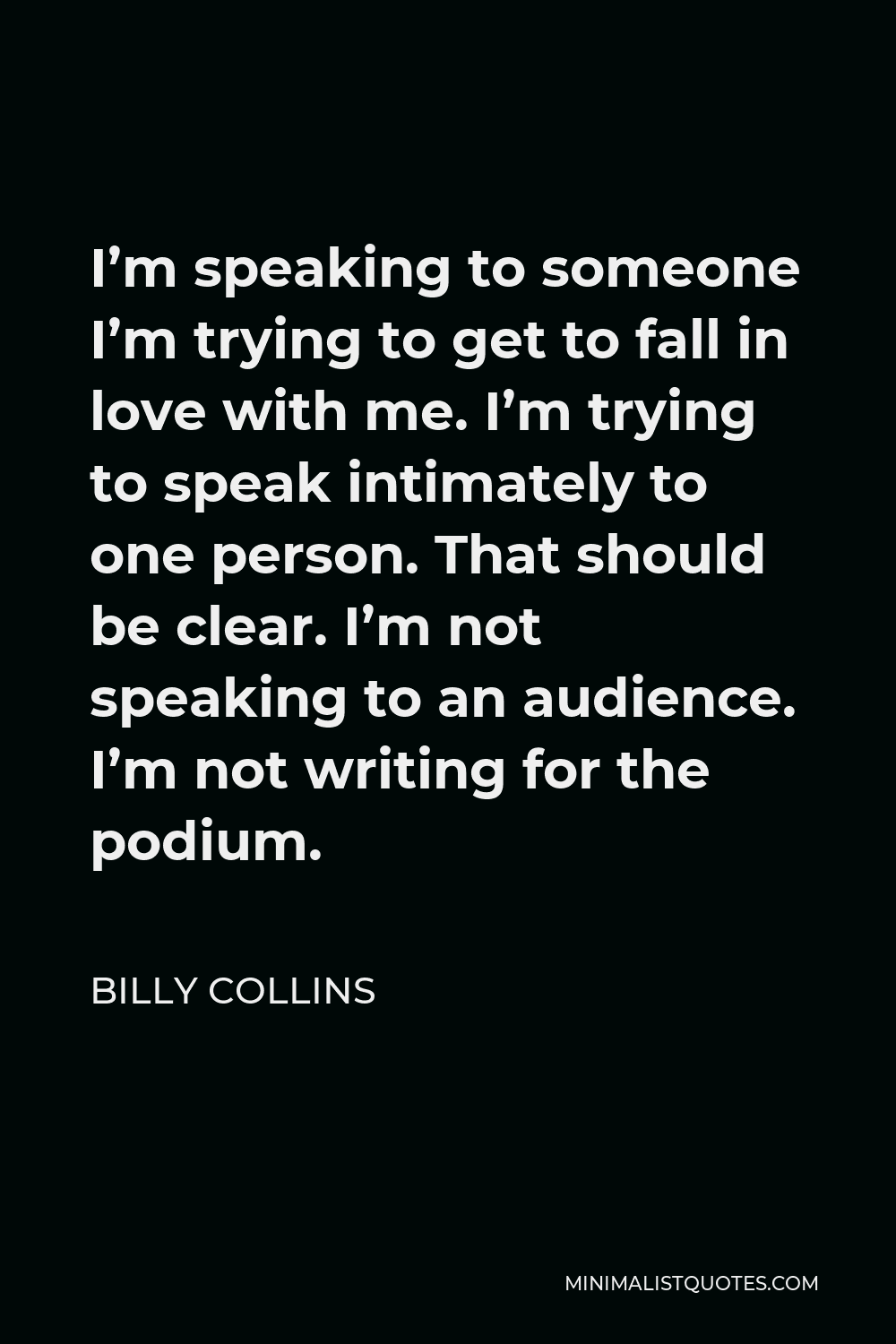
I’m speaking to someone I’m trying to get to fall in love with me. I’m trying to speak intimately to one person. That should be clear. I’m not speaking to an audience. I’m not writing for the podium.
BILLY COLLINS -





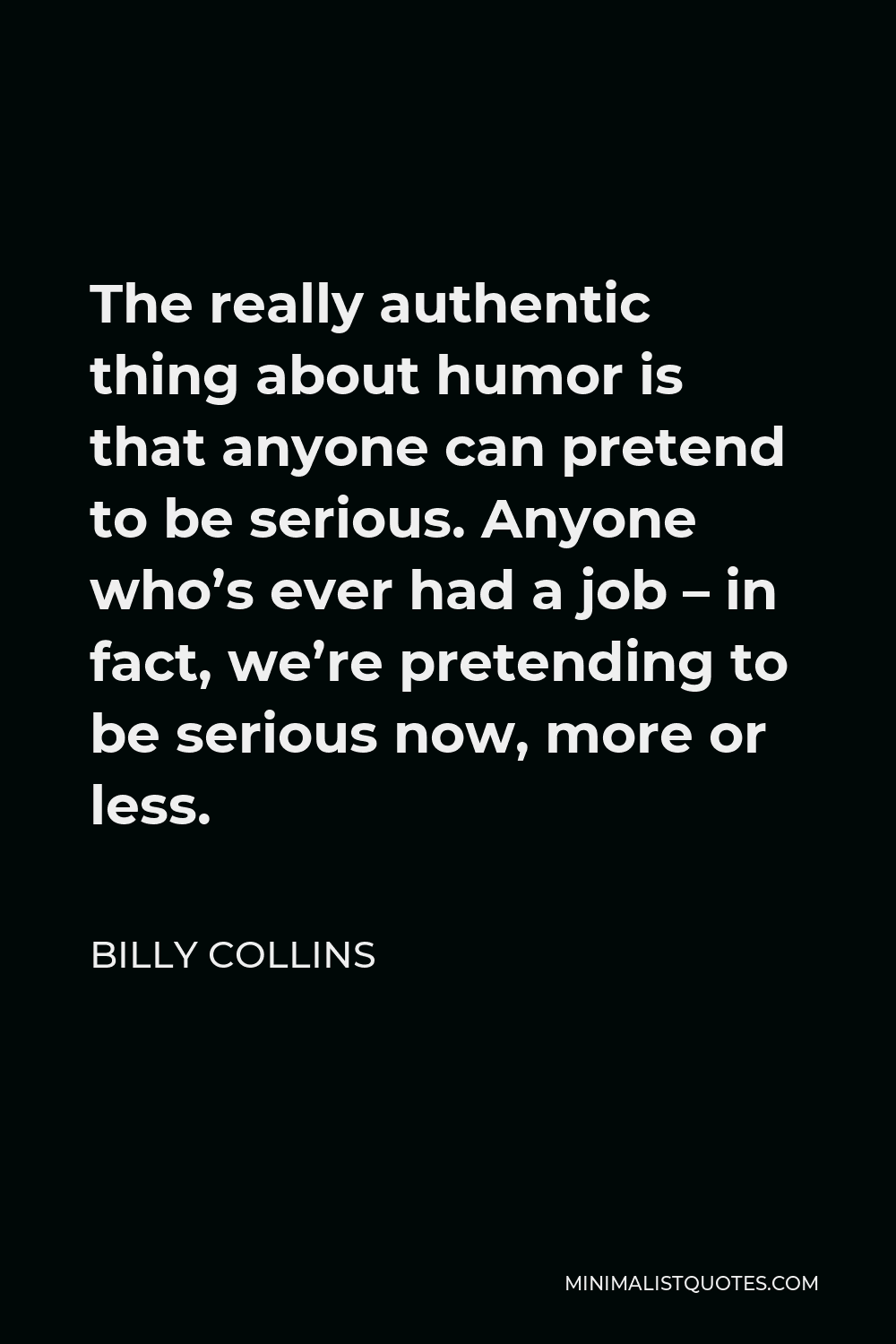
The really authentic thing about humor is that anyone can pretend to be serious. Anyone who’s ever had a job – in fact, we’re pretending to be serious now, more or less.
BILLY COLLINS -





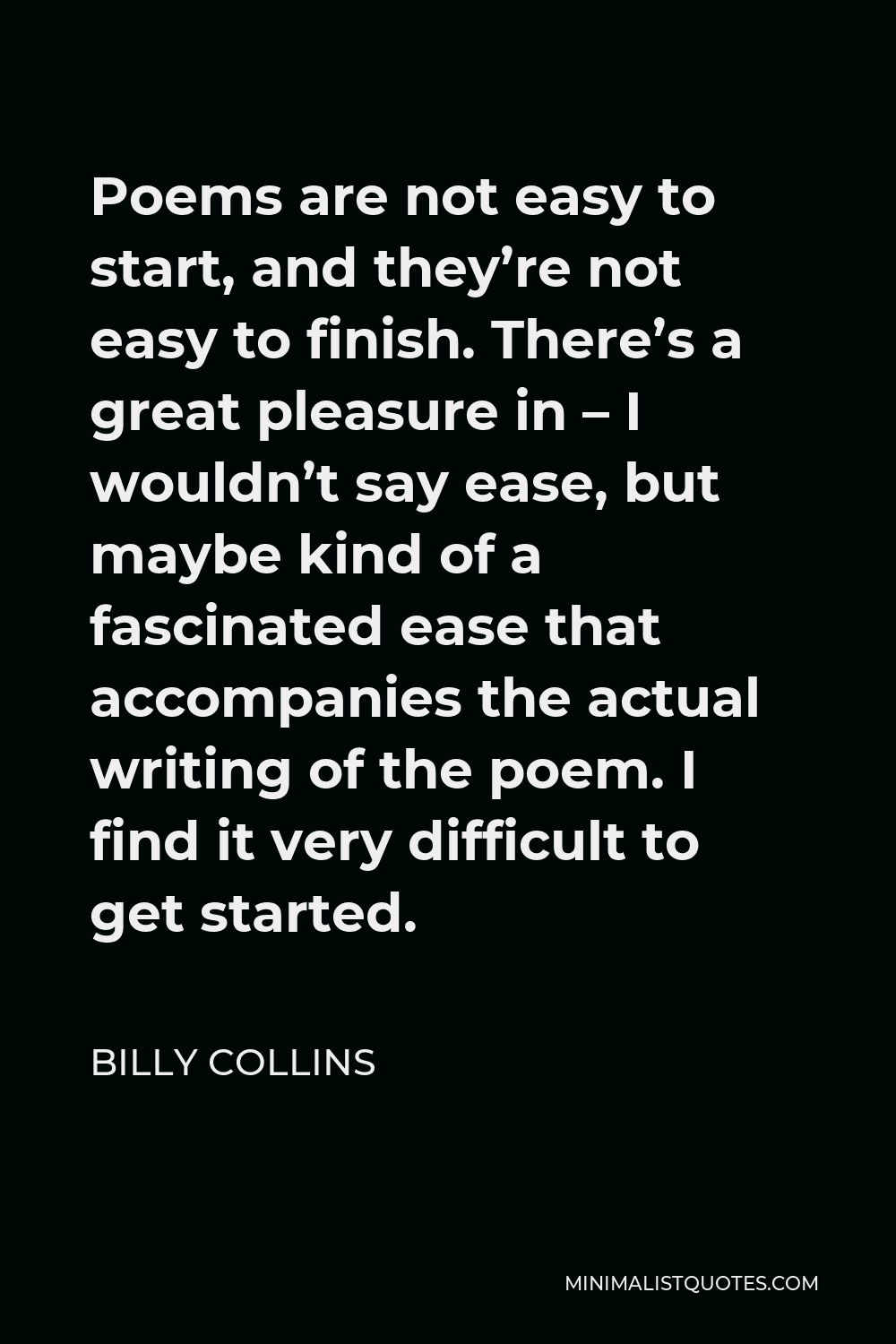
Poems are not easy to start, and they’re not easy to finish. There’s a great pleasure in – I wouldn’t say ease, but maybe kind of a fascinated ease that accompanies the actual writing of the poem. I find it very difficult to get started.
BILLY COLLINS -





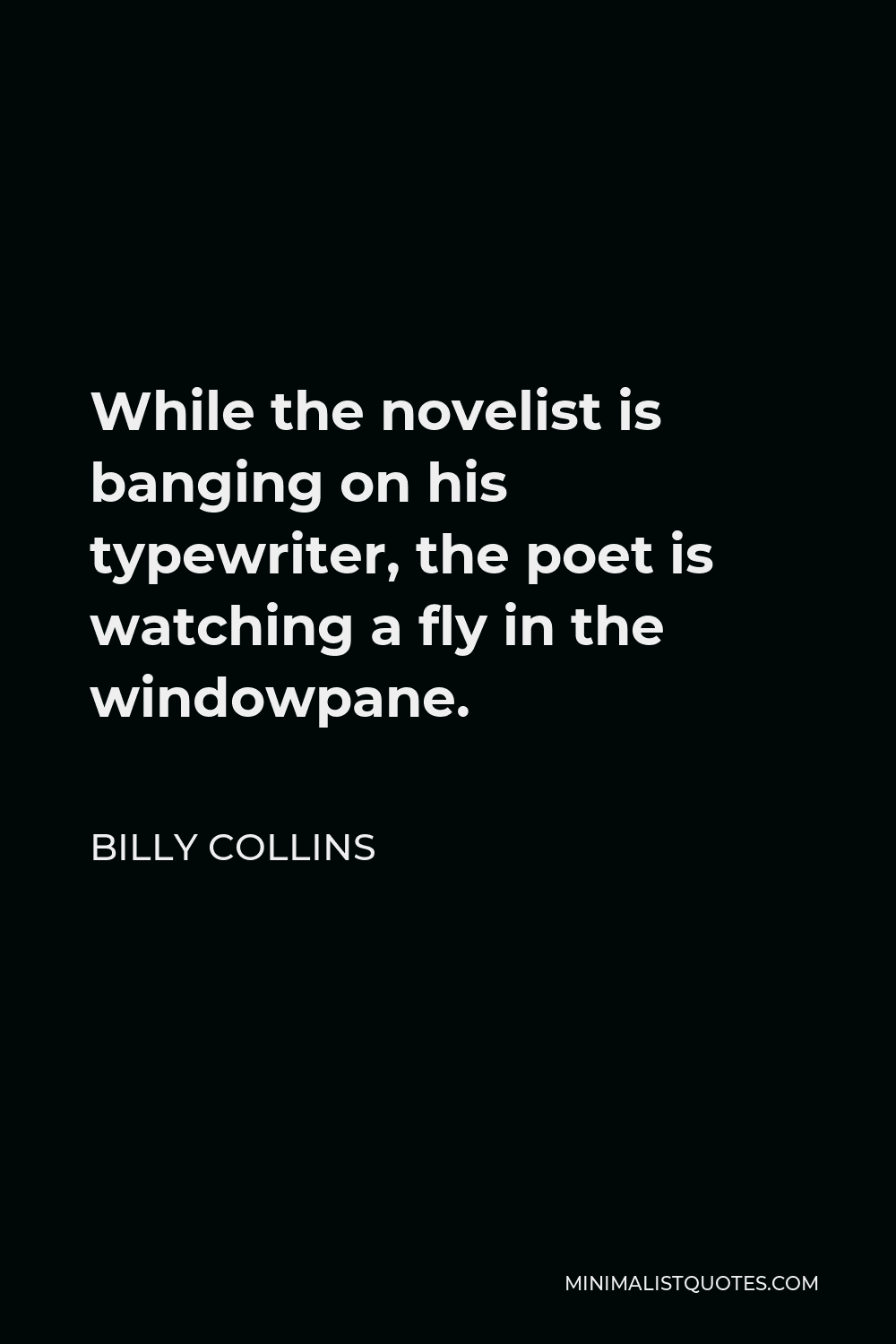
While the novelist is banging on his typewriter, the poet is watching a fly in the windowpane.
BILLY COLLINS
